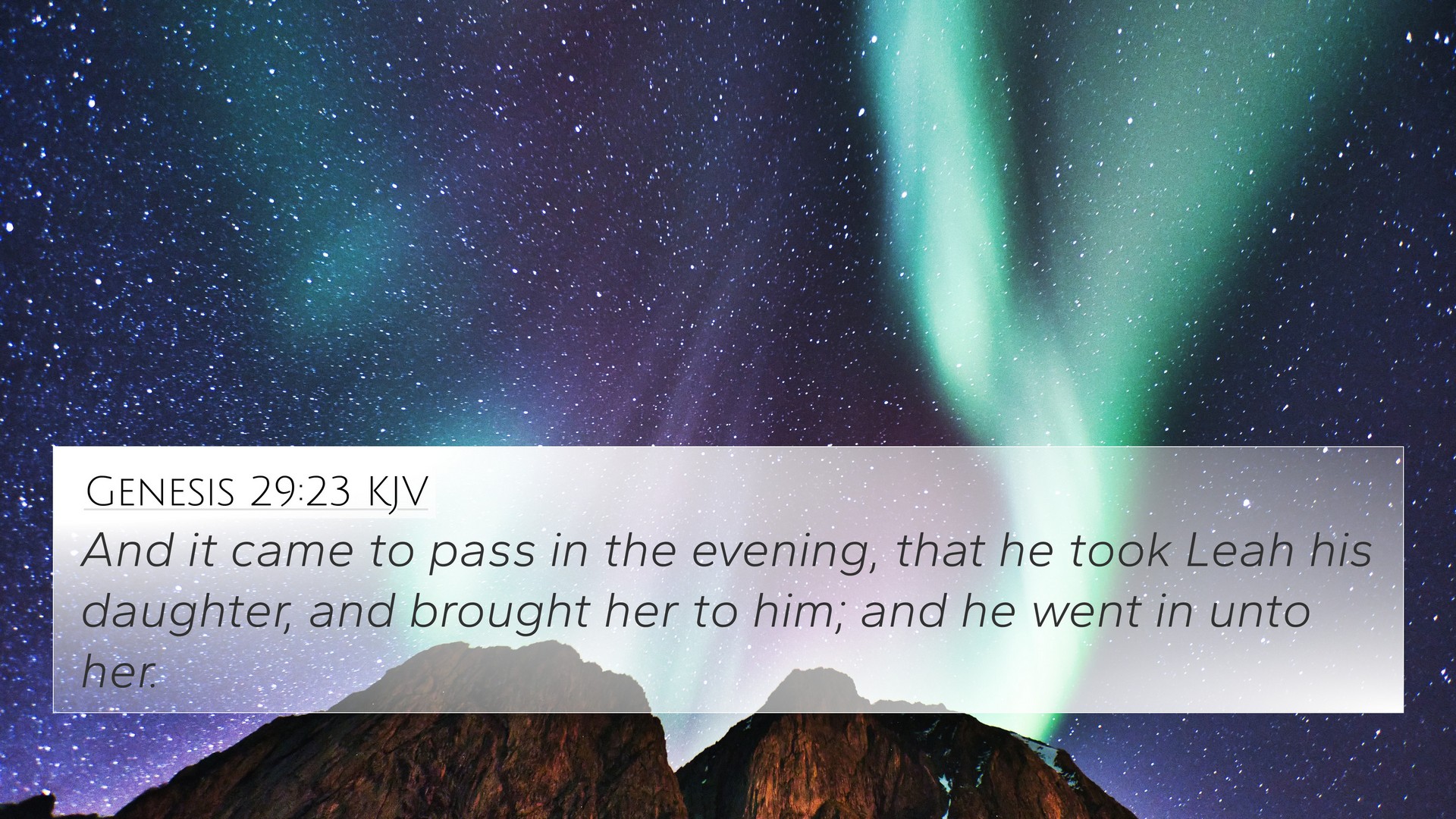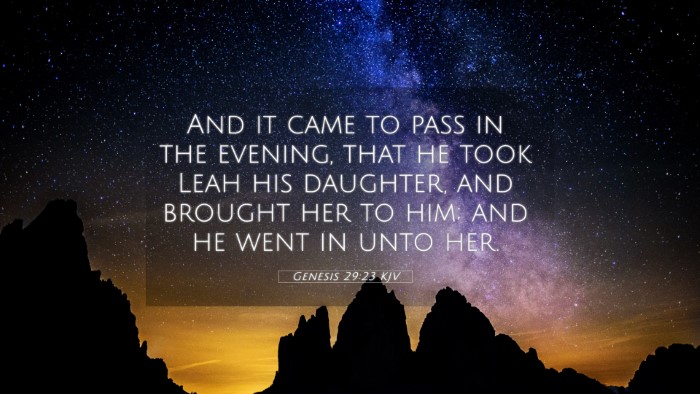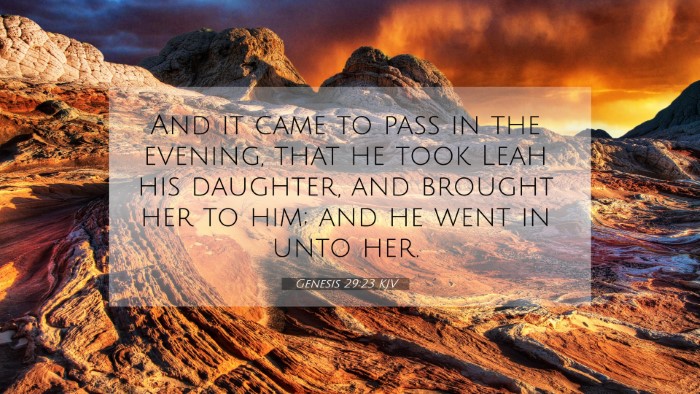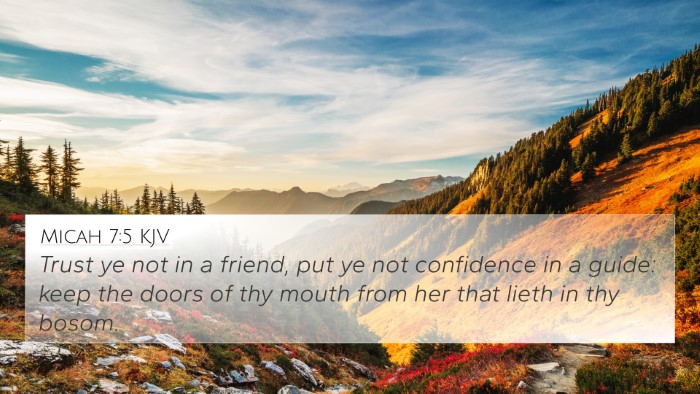Understanding Genesis 29:23
Genesis 29:23 is a significant verse within the narrative of Jacob, Laban, and Leah. In this passage, it is noted that Jacob is deceived into marrying Leah instead of Rachel, the woman he loved. This verse highlights themes of deception, familial obligation, and the complexities of love and marriage in the Biblical context.
Verse Context
The context of this verse unfolds within the broader story of Jacob working for Laban to earn the hand of Rachel in marriage. After working for seven years, Jacob's expectation is thwarted when Laban gives him Leah instead. This scenario illustrates the cultural practices regarding marriage and the manipulation that can occur within familial relationships.
Commentary Insights
-
Matthew Henry:
Henry emphasizes the role of God's providence in the circumstances surrounding Jacob's marriage. He argues that Leah's being given as a wife instead of Rachel is part of God's plan to demonstrate His sovereignty in human affairs. He observes how this moment serves to teach Jacob and the broader audience about the consequences of one's choices and actions.
-
Albert Barnes:
Barnes suggests that the event should be understood as a divine judgment upon Jacob for his earlier deceitful behavior. Just as Jacob had deceived his father Isaac to receive his brother's blessing, so too was he deceived by Laban, which serves as a moral lesson about the nature of justice and retribution.
-
Adam Clarke:
Clarke provides a cultural insight, noting how the practices of arranged marriages and the importance of lineage impacted the events that unfolded. He highlights the significance of Leah not receiving the love of her husband and how this affects her identity, marking the beginning of complex family dynamics that will unfold later in the narrative.
Thematic Connections
This verse creates thematic connections with several other scriptures and narratives throughout the Bible, including:
-
Genesis 27:35: Jacob's deception of Isaac highlights themes of sibling rivalry and manipulation.
-
Genesis 30:22-24: Leah's struggle for love and the eventual birth of her children illustrate God's favor and how it can manifest in different aspects of life.
-
Matthew 7:2: This New Testament verse resonates with the themes of judgment and the consequences of actions, tying back to Jacob's story.
-
Exodus 20:17: The commandment against coveting points to the complexities of desire and relationships, as seen in Jacob's longing for Rachel.
-
Ruth 1:16: The devotion shown by Ruth parallels Leah's unwanted position in her marriage, where relationships are central to identity and destiny.
-
1 Peter 2:8: The idea of being a "stumbling block" reflects how Leah's role and status leads to unexpected outcomes in the lineage of Israel.
-
Malachi 2:16: This verse underscores God's view of marriage and the pains caused by unfaithfulness and wrong unions.
Cross-Referencing Biblical Texts
The cross-referencing of Genesis 29:23 with these passages offers deeper interpretive insights into humanity's struggles, God's justice, and the overarching narrative of redemption throughout Scripture.
Practical Application
Understanding Genesis 29:23 encourages readers to reflect on the nature of our actions and how they affect both ourselves and others. The experiences of Jacob serve as a mirror to our own relationships and the consequences that may arise from our decisions.
Conclusion
In summary, Genesis 29:23 conveys profound lessons regarding love, commitment, and the intricate web of human relationships. Through the lens of public domain commentaries, we gain a richer understanding of its thematic implications and scriptural connections that are vital for both personal faith journeys and broader theological studies.





